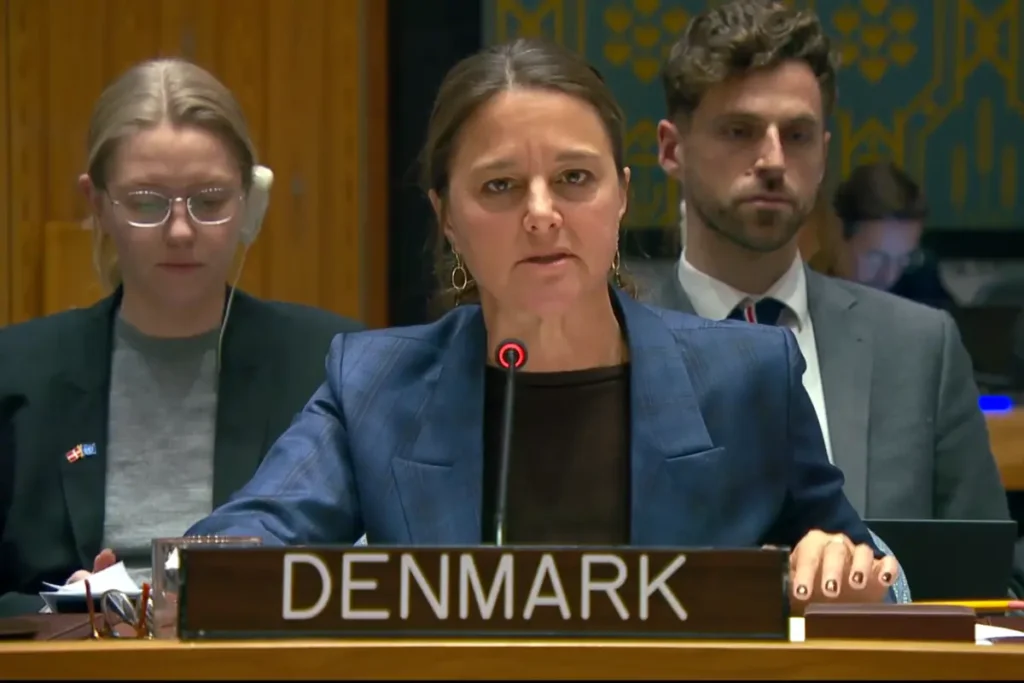At the 80th session of the United Nations General Assembly, Ambassador Christina Markus Lassen of Denmark issued a stark warning that brought the escalating security challenge facing South Asia onto the global agenda. The focus of her address was the outlawed Tehreek-e-Taliban Pakistan (TTP), a militant group that Denmark noted poses a severe and destabilizing threat to the region. Ambassador Lassen revealed intelligence suggesting that approximately 6,000 TTP militants are operating from Afghan soil, alleging that the Afghan Taliban regime is providing them with “logistic support and facilitation” . This diplomatic alarm underscores the urgent need for international coordination to address what has become a persistent, cross-border security crisis.
The Tehreek-e-Taliban Pakistan Operational Landscape
The scale of the threat highlighted by Denmark is consistent with international security assessments. UN intelligence estimates for 2024 place the total strength of the Tehreek-e-Taliban Pakistan at between 6,000 and 6,500 fighters, reaffirming its entrenched position along the porous border. Since the Afghan Taliban’s return to power in 2021, the operational capacity of the TTP has undergone a significant transformation. The group has leveraged its safe haven in Afghanistan to reorganize, centralize its command structure, and launch more effective attacks into neighboring territory.
A major dimension of this evolving threat is the TTP’s established alliances with other transnational terrorist organizations. United Nations member states have expressed concern that TTP operatives are receiving training in Al-Qaeda camps located in Afghan border provinces such as Nangarhar and Kunar. This collaboration includes sharing fighters and operational expertise. Such an alliance could potentially transform the TTP from a localized concern into an “extra-regional threat,” capable of projecting influence and violence beyond South Asia.
Intensified Security Challenges to Pakistan
The direct consequence of the TTP’s reorganization and cross-border sanctuary has been a dramatic intensification of terrorist activity inside Pakistan. According to security reports, Pakistan experienced 521 terrorist attacks in 2024, marking a significant 70% increase compared to the previous year. This surge tragically claimed 852 lives, a 23% rise in fatalities.
The Tehreek-e-Taliban Pakistan and its religiously inspired affiliates were responsible for a substantial number of these attacks, underscoring their primary role in challenging regional stability. The TTP’s operational reach has been demonstrated through high-impact attacks that targeted key security installations and urban centers. For instance, the suicide assault on the Cadet College in Wana, South Waziristan, involved a sophisticated five-man assault team. Furthermore, the suicide bombing outside a district court in Islamabad in November 2025, which killed 12 people, was the first major attack in the capital in years, highlighting the TTP’s capacity to penetrate secure areas and escalate the security challenge facing the nation.
A Call for Global Reciprocity Against the TTP
Ambassador Lassen’s address was a clear demand for the international community to take serious note of this growing threat and act collectively to eliminate the safe havens in Afghanistan. Denmark explicitly linked the future of international relations with the Afghan Taliban to their willingness to cease TTP facilitation. This policy, known as “reciprocity,” stipulates that engagement on the Taliban’s priorities can only advance if they demonstrate progress against the TTP “in deeds, not just words”.
With global attention often diverted by conflicts in Ukraine and the Middle East, the Tehreek-e-Taliban Pakistan crisis risked being marginalized. Denmark’s strong position leverages the shared global mandate to counter terrorism, urging the UN Security Council, which is often divided and “unable or unwilling to act”, to fulfill its primary role in ensuring international peace. By focusing on the TTP as a critical element of instability, the diplomatic push seeks to re-establish a unified, principled international approach, asserting that the removal of safe havens for groups like the Tehreek-e-Taliban Pakistan is non-negotiable for regional and global security.



